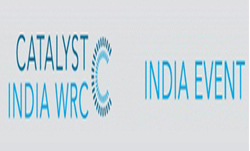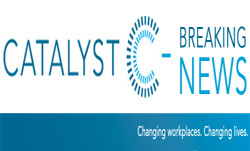A new Catalyst report highlights high-potential Employees’ bids for satisfying and challenging roles benefit Individuals, leaders, and organisations

The persistent gender gap in access to “hot jobs”—those high visibility, mission-critical roles and international experiences—prompts the question: what can women do to maximize their access to these leadership development opportunities? Role negotiation may represent the kind of intentional, bold action that is helpful to both women and men in their career advancement, but also to leaders who are worried about retaining top talent. According to a new Catalyst report, Role Negotiation and the Pursuit of Hot Job there are several potential pay offs to high potentials’ successful role negotiations: they report greater access to hot jobs, see themselves as more innovative in their work, and picture themselves as more likely to stay with their current organisation.
The report findings include:
- Access to hot jobs—High-potential women and men who were most successful in negotiating their roles were 42% more likely to have profit and loss responsibility and 30% more likely to lead projects with “very great” visibility to the C-suite than were those who were least successful negotiating their roles.
- More innovative—High-potential women and men who reported the greatest success negotiating their roles were more than twice as likely to report being “most” innovative in their roles than were high potentials who were the least successful in role negotiation.
- Intentions to remain with current organization—High-potential women and men who reported the greatest success in role negotiation were 143% more likely to indicate the “strongest” intentions to remain with their current organizations than were those who reported the least success in role negotiation.
- Inclusive leadership and supportive organizations—High-potential women and men reported greater success in role negotiation when they perceived that their managers modeled inclusive leadership behaviors, and their organizations supported them. For example, high potentials who perceived their leaders to be most inclusive were 4.5 times more likely to report the greatest success in role negotiation than were those who perceived their leaders to be least inclusive.
On the result, Deborah Gillis, President and CEO of Catalyst stated:
“Catalyst has already dispelled the myth that high-potential women and men receive the same access to career-making roles. We’ve now determined that role negotiation could make a dramatic difference in the careers of talented women who want to take on rewarding leadership assignments,”
“Our research also makes clear that high-potential women (and men) can’t do it alone. It takes deliberate investment on the part of leaders and organizations to help those individuals who will probably become key players in the future.”
Role Negotiation and the Pursuit of Hot Jobs surveyed 923 high potentials—568 women and 355 men—who graduated from various MBA and executive education programs located across the United States, Canada, Europe and Asia. The report is a follow up to Catalyst’s Good Intentions, Imperfect Execution (2012), which dispelled the myth that high-potential women and men receive the same on-the-job leadership development opportunities.
Learn more about Role Negotiation and the Pursuit of Hot Jobs.
About Catalyst
Founded in 1962, Catalyst is the leading nonprofit organization accelerating progress for women through workplace inclusion. With operations in the United States, Canada, Europe, India, Australia, and Japan, and more than 800 supporting organisations, Catalyst is the trusted resource for research, information, and advice about women at work.





